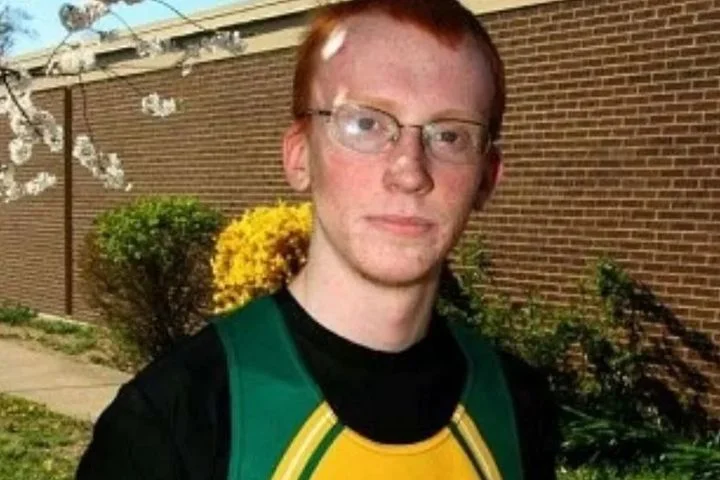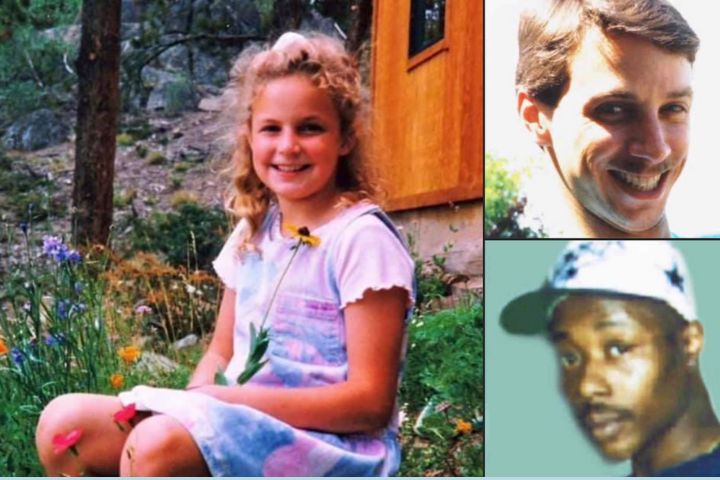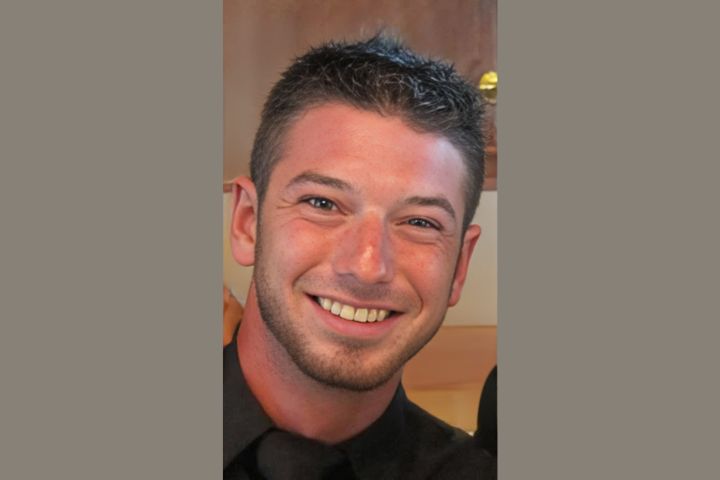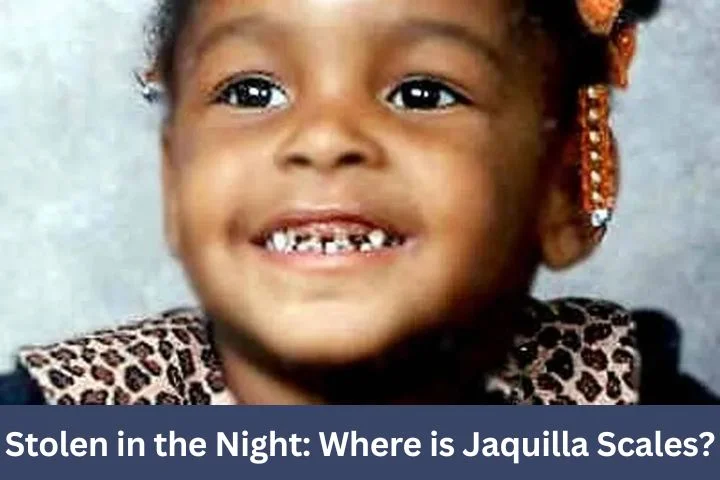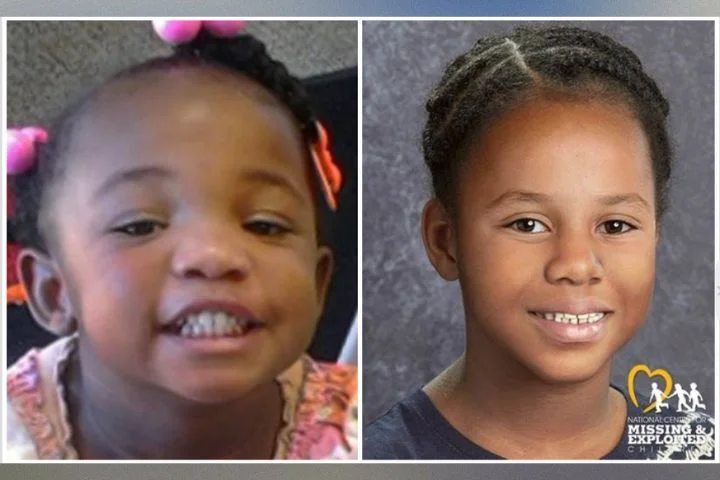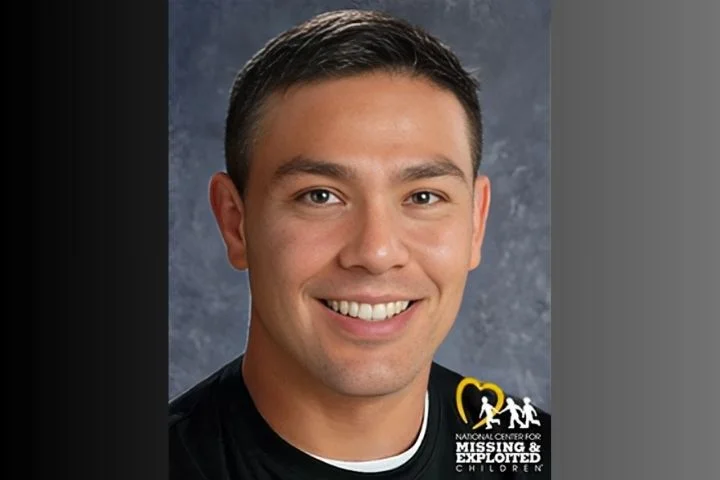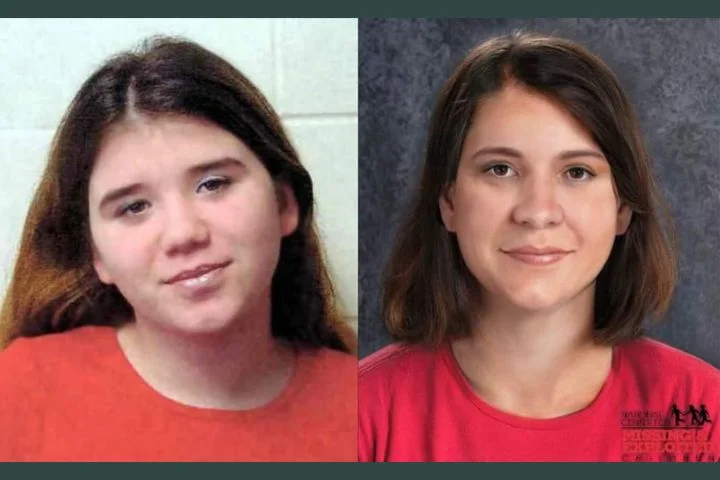Jesse Ross was a 19-year-old sophomore at the University of Missouri — Kansas City. He was majoring in communications and minoring in political science, and he was active in a number of different clubs on campus. He became a member of the university’s Model United Nations (MUN) as a freshman, and getting to go to the 2005 Model United Nations Conference at the University of Chicago had been one of the highlights of his year. Students from all over the country attended the conference, and it was a great way to meet new people. He was excited about taking part in MUN his sophomore year, and had been looking forward to the 2006 conference since the beginning of the semester.
Derek Moorhead was the faculty advisor of MUN and the chaperone for the 2006 conference. It was a role that was new to him. Up until the previous year, Derek had been a partner at a law firm; tired of the stress and long hours he decided to embark on a new career as a college professor at UMKC. It was a decision that would have a profound impact on his life.
The conference was scheduled to begin on Saturday, November 18, 2006. Jesse woke his father up before dawn so he could get a ride to UMKC to meet with the rest of the group. There were a total of 14 people going to the conference, Derek and 13 students. The school didn’t have the budget to pay for airfare, so the group made the 10-hour drive to Chicago in a rented van. They arrived in Chicago late Saturday afternoon. Although all conference-related events were being held in the Sheraton Chicago Hotel, the 1200 students who attended were housed in a total of three different area hotels. The UMKC contingent was staying at the Four Points Sheraton, a 15-minute walk from the Sheraton Chicago.
Jesse shared a room with Ralph Parker. The two had gone to the same high school in Belton, Missouri and had become good friends in college. They were both members of the MUN Security Council, and spent most of their time in Chicago together. The conference had a packed schedule with many different events for the attendees, but they also had some free time to explore the city. On Monday afternoon, Jesse and Ralph went to a Harley Davidson store, then had dinner at the Hard Rock Café. They returned to the Sheraton Chicago in time for their 6:00 pm — 9:30 pm session.
Since Monday night was the last night of the conference, there was a dance held for the students from 10:00 pm — 2:00 am. Several members of the UMKC group told Derek that they weren’t going to stick around for the dance; they left the Sheraton Chicago to head back to their own hotel around 10:00 pm. Assuming all of his students were going back to the Four Points Sheraton, Derek saw no need for him to attend the dance. He and a graduate student went out to a restaurant and then returned to their own rooms.
While most of the students were free from conference obligations until 11:00 am the next day, those who were members of the MUN Security Council — including Jesse and Ralph — had to attend a meeting at 2:30 am. The meeting was a simulation of an actual Security Council emergency meeting that took place in 1990 and served to show students the unpredictable nature of international politics. It was scheduled for 2:30 am in order to make the experience as authentic as possible.
Jesse went back to the Four Points Sheraton around 10:00 pm. He joined a group of students who were hanging out in one of the hotel rooms. Alcohol was strictly prohibited at the conference, but it was an easy rule to ignore. At the 2005 conference, one of the attendees had gotten so drunk that she had been unable to figure out how to get back into her room. Classmates found her sleeping in the hallway the following morning.
The impromptu hotel room party ended after a couple hours. Several students, fortified with alcohol, decided to walk back to the Sheraton Chicago to see what was going on at the dance. Jesse is seen on surveillance footage leaving the Four Points Sheraton at 12:43 am. He was alone, carrying a plastic bottle.
It’s unclear if Jesse stopped anywhere on his way to the Sheraton Chicago, but surveillance footage shows him approaching the entrance to the hotel at 1:09 am. The walk would normally take about 15 minutes; Jesse may have stopped to talk with people along the way or he may have been walking slower than normal since he had been drinking.
Jesse stopped by the dance when he first got to the hotel. Photos taken by other students show him smiling and holding up a Powerade bottle. None of the chaperones caught on to the fact that the bottle was actually filled with a vodka cocktail.
After spending about 20 minutes at the dance, Jesse took the elevator up to the 8th floor of the hotel. There, he went to another hotel room party, this time with students from a different college. They remember him showing up around 1:30 am, and he continued drinking with them until it was time for him to go downstairs for his security council meeting.
Ralph was already at the meeting when Jesse arrived around 2:30 am. One student who saw Jesse enter the room said it looked like he needed help walking; he assumed Jesse was drunk. Ralph said Jesse appeared to be coherent, but he didn’t stay at the meeting long. At 2:50 am, Jesse whispered something to Ralph, but Ralph didn’t hear what he said. Before he could ask for clarification, Jesse got up and left the room. Initially, Ralph assumed Jesse was just going to the restroom, but he never returned. Ralph wasn’t too concerned; he figured Jesse was simply tired and had decided to go back to their hotel and go to sleep.
One of the other students saw Jesse right after he left the meeting, and he noted that Jesse appeared to be inebriated. His eyes were red and he was slurring his words. The student was concerned, but Jesse said he was just going to stop outside for a moment to get some fresh air and would be right back. The student headed back to the Security Council meeting, unaware that the chance meeting in the hallway would be the last confirmed sighting of Jesse.
The Security Council meeting lasted until 5:30 am. Ralph made the walk back to the Four Points Sheraton alone and went straight up to his room. In the dim light from the hallway, he could see a raised mound on Jesse’s bed and assumed his roommate was already sleeping. Not wanting to wake him up, Ralph didn’t turn on any lights. Exhausted, he collapsed into his bed and immediately fell asleep.
Ralph slept until 10:00 am. When he woke up, Jesse wasn’t in the room; the mound he had seen on his bed was simply a pile of clothes. He wasn’t overly concerned; Jesse had probably decided to crash in someone else’s room. They had to be packed and out of the room before heading back to the Sheraton Chicago for the final conference meetings that afternoon, so he was sure Jesse would show up by then. He started to get nervous as checkout time drew nearer and there was still no sign of Jesse, but told himself his friend had probably just lost track of time.
When he was unable to reach Jesse on his cell phone — all his calls went straight to voicemail — he walked over to the Sheraton Chicago to see if he could find him there. He felt himself growing more anxious as he scanned the lobby; Jesse, with his bright red hair, was normally easy to spot in a crowd. There was no sign of him. Ralph was able to find Derek, and immediately told him Jesse appeared to be missing.
One by one, all the UMKC students began to show up in the lobby, luggage in hand. Derek quizzed each one as they arrived, but none of them had seen Jesse. All calls to his cell phone continued to go straight to voicemail. Derek decided to check Jesse’s hotel room to see if he could find any clue as to where Jesse might be. All of his personal belongings were still strewn around the hotel room; it was clear Jesse had not started to pack for their departure. When Derek found an empty gallon-sized bottle of vodka, he thought it was possible Jesse had just had way too much to drink the night before and was holed up in a room somewhere trying to sleep it off. The entire group began knocking on the doors of conference attendees, hoping someone would be able to tell them where they could find Jesse. They couldn’t find anyone who had seen Jesse after 3:00 am.
Derek called hotel security at 1:30 pm and told them that one of his students was missing. After searching for another hour without finding any trace of Jesse, he made a heartbreaking phone call to Don and Donna Ross to tell them he couldn’t find their son, then went to the police station and filled out a missing person report.
Chicago Police detectives were sent to the Sheraton Chicago Hotel at 4:00 pm. By this time, the conference was over. Most of the 1200 students who attended it had already left to return home, leaving detectives with few witnesses to interview. Another room-to-room search was conducted; they found no sign of Jesse and no signs that foul play had taken place. Although the general consensus among the investigators was that Jesse had simply taken off on his own, the situation was still serious. They knew he had been drinking, and worried that he might have drunkenly stumbled into the Chicago River. They walked up and down the river front without finding anything, but there was little they could do once it got dark. A more comprehensive search was arranged for the following morning.
All of the UMKC students were rattled by Jesse’s disappearance, and several of them spent the afternoon in tears. Derek made the decision to send them home, knowing Thanksgiving was in two days and they were anxious to see their parents. The group made the 10-hour drive in silence, worried about their friend. Derek remained in Chicago to assist the police with their investigation. Unable to sleep, he spent the next 12 hours wandering up and down the streets of Chicago looking for Jesse. He walked every possible route between the Sheraton Chicago and the Four Points Sheraton, checking in alleys and dumpsters for any sign of the missing teen.
Don and Donna Ross were at home in Belton, Missouri when the search for their son was started. Their initial instinct was to catch the first flight to Chicago, but the Thanksgiving holiday made finding an available flight impossible. Chicago detectives tried to comfort them over the phone, telling them there was no need for them to arrive immediately. Everyone was still hopeful that Jesse would be quickly located and home with his family in time for Thanksgiving.
On Wednesday morning, police, the Coast Guard, and fire department divers began searching the Chicago River near the Sheraton Chicago. It was a relatively routine search for them; they were sent to recover the bodies of suicide victims on a fairly regular basis. They knew from experience that anyone who went into the water in that area was usually found within 10 feet of their point of entry, so they concentrated on the stretch of river directly behind the Sheraton Chicago. They found plenty of trash and a number of traffic cones, but nothing to indicate Jesse was in the water. A search of the streets and alleys around the hotel also failed to yield any clues.
While search teams were scouring the city for any sign of Jesse, detectives reached out to students who had attended the conference. They needed to build a comprehensive timeline of Jesse’s movements in the hours before he went missing, but locating witnesses was a difficult task. All the colleges who had sent students to the conference were now closed for Thanksgiving break, and tracking down students proved nearly impossible due to the holiday. Even those students they were able to reach offered little in the way of help. Due to the fact that most of them were underage and alcohol had been involved, they were reluctant to speak with police.
Police used surveillance footage to try and pinpoint when Jesse left the Sheraton Chicago, but there was no video of him exiting the hotel. Police believed when he left the Security Council meeting he would have gone out the back door of the hotel, which would have put him within 25 feet of the Chicago River. Convinced he must have somehow stumbled into the river at that point, divers were sent to do another search. Again, they found nothing. They extended the search, each day moving further upriver. After two weeks of searching, divers were certain that Jesse was not in the river. Detectives began investigating the possibility that Jesse may have gone missing voluntarily.
Don and Donna Ross were adamant that Jesse had not chosen to disappear. Although UMKC hadn’t been his first choice for college — he initially wanted to go to the University of Kentucky, but his parents convinced him it was too far and too expensive — he had thrown himself into campus life and soon loved his school. In addition to being a member of MUN, he was the spirit coordinator for the university’s program and activity council and an intern at a local radio station.
Jesse was hoping for a career in the radio industry, and he had been thrilled when he landed the internship on 95.7’s popular morning show. Though he was only part-time, it wasn’t long before Jesse — called “Opie” on air — started gaining fans throughout Kansas City. His coworkers called him Opie because his red hair and freckles reminded them of Opie from the Andy Griffith Show. Just before he left for the MUN convention, Jesse had been offered a paid position with the radio station. He had been ecstatic about the news, seeing it as the first step in what was sure to be a promising career.
With his great sense of humor and approachable personality, Jesse made friends wherever he went. He had been a bit hyperactive as a child, and he tended to get bored if he had to stay in one place for too long. He loved life and wanted to make sure he experienced everything the world had to offer. He was close with his parents and his brother. There was nothing about him that made him a likely candidate to voluntarily disappear.
Don and Donna Ross told detectives that Jesse was a good kid, but he was a typical teen who could use poor judgment at times. He could also be overconfident. When he attended the MUN conference the previous year, he had returned home without the video camera his father lent him. He told his parents that, while walking around the city of Chicago at 1:00 am, a man with a knife had mugged him and taken the camera. His parents were horrified, but Jesse took the incident in stride. Like all teenagers, he felt like he was invincible, and the fact that he survived the mugging physically unscathed reinforced this belief.
The Midwest was hit with a major snowstorm the week after Jesse went missing, once again making travel to Chicago impossible. Jesse’s parents felt like caged animals in their own home, constantly calling for updates on the search for Jesse. When the storm was over, Don Ross flew directly to Chicago. Jesse’s older brother, Andy, also made the trip. They were met at the airport with the grim news that the body of a white male had just been pulled out of the Chicago River. Although police had not yet released any news on the identity of the body, most assumed it was Jesse. After a tense afternoon of waiting, the Ross family heard from detectives. The body did not belong to Jesse. It was that of a suicide victim.
Convinced that Jesse was still alive, Don and Andy hit the streets of Chicago armed with posters and flyers containing information on Jesse. They walked around in the bitter cold for hours, handing each passerby a flyer and pleading with them to be on the lookout for Jesse. They returned to their hotel room feeling deflated. They still had no idea where Jesse was, and the enormity of the situation was beginning to weigh heavily on them.
During the initial weeks of the investigation, police were confident that Jesse was going to be found in the river. The previous December, a man staying at the Sheraton Chicago had gone missing; his body was pulled from the river two weeks later. Assuming Jesse would have entered the river at the same spot as this man, divers scoured the area between the hotel and the spot where the man’s body had come to rest. They found nothing.
Investigators considered the possibility that Jesse’s body might have somehow made it into Lake Michigan. The Chicago Harbor Lock separates the river from Lake Michigan; if the river level gets too high, the lock gates can be opened to release water into the lake so the river won’t flood. Detectives questioned the lock maintenance engineer to see if the gates had been opened during the time Jesse would have been in the water. He noted that no flood control had been necessary so the gates had been in their normal position. He also checked traffic logs to see if any large barges could have inadvertently dragged a body into the river, but none had been in the area. The engineer concluded it was essentially impossible for Jesse to be in Lake Michigan.
Detectives had concentrated on the river because they assumed Jesse left the hotel through the back doors of the hotel, mere feet from the river. Yet if he had done so, he should have been seen on surveillance video on the escalator leading to the back door. Investigators watched the footage numerous times, but there was no sign of Jesse. When they interviewed Ralph Parker, he told them that Jesse never used the back door. Instead, he would use a stairway located adjacent to the conference room; this led directly to the valet parking area and was the closest exit to the Four Points Sheraton. This door was not along the waterfront and the path Jesse would have taken from there to his hotel did not take him past the river.
Investigators reviewed surveillance footage of the valet area to see if they could confirm what Ralph told them. They discovered that, if Jesse had exited these doors and immediately began walking towards his hotel, he would not appear on camera because it was pointed in the other direction. This would explain why no surveillance footage showed him leaving the hotel, and would make drowning in the river seem far less likely.
All routes between the two hotels had been extensively searched immediately following Jesse’s disappearance, and nothing was found to indicate a struggle had taken place. As they considered interviewing people from the conference, detectives learned that it was possible Jesse had not headed straight for his hotel. According to numerous witnesses, Jesse had talked about checking out a rave that was being held in Chicago. He was interested in becoming a DJ, and he wanted to see if the DJ at the rave could give him any tips on how to do so.
During the 10-hour drive to Chicago, the group had listened to a few mix CDs Jesse made. He hoped to connect with a DJ in Chicago and give him the CDs to showcase his talent. He also had a yellow flyer advertising a rave that was supposed to take place in the city. The flyer and the CDs were not found in Jesse’s room after he disappeared, leading some of his friends to wonder if he had left the hotel Monday night with them. Detectives tried to follow up on this lead, but were unable to confirm if any raves had been held the night Jesse disappeared. Although mainstream raves are very well promoted, underground raves and outlaw raves are sometimes held in abandoned buildings or other illegal spaces. To prevent authorities from finding out about them, they aren’t widely promoted outside the rave community. It’s possible that Jesse, with his radio connections, may have learned of one of these raves and decided to attend it on Monday night. He could have met with foul play on the way there, or at the event itself.
A variety of different drugs are readily available at underground raves. There is nothing to suggest that Jesse had ever tried drugs before, but he was highly intoxicated. With his judgment impaired by alcohol, he may have accepted something from someone without knowing what it was and ended up dying from it. Unfortunately, whenever someone overdoses at a party — especially one held in an illegal place — people rarely think about calling for medical help. If Jesse’s body were left in an abandoned building — there are thousands of them in Chicago — it would be very hard to find.
Without knowing what direction Jesse went in when he left the hotel, it is nearly impossible to track his movements. He does not appear on any surveillance footage from any of the outside security cameras in the area of the hotel, and the last ping from his cell phone was at 3:30 am, less than an hour after he left the conference. It wasn’t long before Jesse’s case went cold; his parents hired a private investigator to assist in the search. Despite everyone’s efforts, investigators know nothing more than they did when Jesse first went missing.
Don and Donna Ross have never stopped looking for their son. They still return to Chicago periodically to hand out flyers and hang up missing posters around the area where he was last seen. For years after the disappearance, they held an annual “Opiefest” fundraiser with all proceeds going towards search expenses and a reward fund.
During Jesse’s time at the radio station, he had a popular segment called “Where’s Opie” for which he would travel to various places throughout Kansas City and describe the location on-air. Listeners would have to figure out where he was calling from. After he went missing, students at UMKC created t-shirts with “Where’s Opie?” printed on them, selling them to raise money for the reward fund.
Derek Moorhead never fully got over the fact that a student under his supervision went missing; at the end of that school year, he decided not to continue teaching.
Jesse Ross was 19 years old when he went missing in Chicago on November 21, 2006. He has bright red hair, blue eyes, and freckles. He is 5 feet 10 inches tall and weighed 140 pounds in 2006. When last seen, he was wearing blue jeans, a white t-shirt, a green jacket, and black sneakers. A $10,000 reward is being offered for his return or recovery. If you have any information about Jesse, please call the Chicago Police Department at 312–744–8266.
